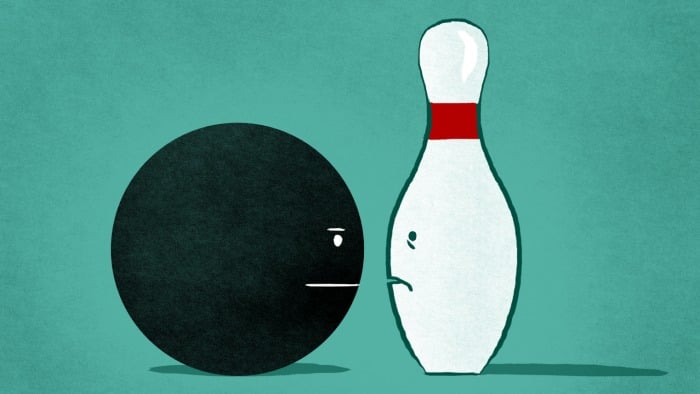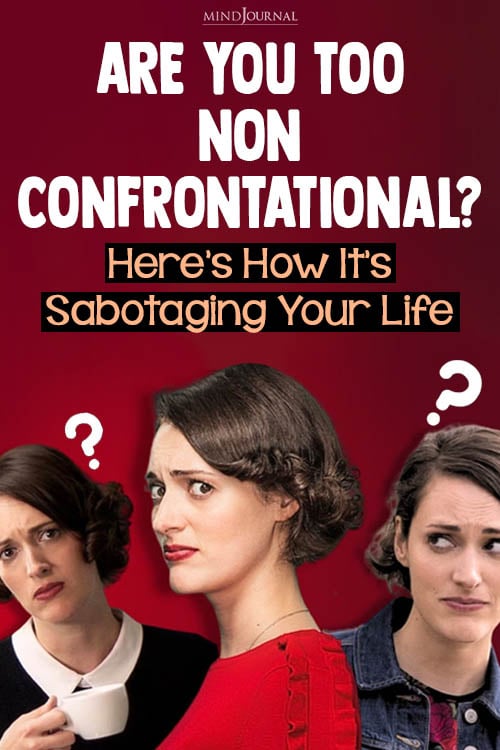Are you the type of person who stays silent even when something bothers you, just to keep the peace? If so, you might consider yourself as a non confrontational personality. But what if I told you that this trait might be doing you harm, more than helping you?
While avoiding confrontation might seem like the best way to maintain peace in relationships and workplaces, it often comes at a high cost. Let’s dive into why being non confrontational is affecting you and how you can strike a balance between peacekeeping and standing up for yourself.

Read More Here: Are You Making The Same Mistake Over And Over? Here’s How To Finally Stop!
Why Is Being Non Confrontational A Bad Thing (Sometimes)
1. You Suppress Your True Feelings
One of the biggest downsides of having a non confrontational personality is that you bottle up your emotions. When you constantly avoid addressing issues, resentment builds up over time.
You might think you’re “letting it go,” but deep down, those unspoken frustrations don’t just disappear, they pile up until they explode or, worse, make you feel chronically unhappy.
2. People May Take Advantage of You
When you never push back or voice your needs, people might start to assume that you’re okay with being treated unfairly. This can happen in friendships, romantic relationships, and even at work.
The more you let things slide, the more others may exploit your unwillingness to stand up for yourself.
3. It Affects Your Mental and Emotional Health
Constantly avoiding conflict can be exhausting. You might replay conversations in your head, think about all the things you should have said, or stress about upcoming interactions.
Over time, this avoidance can lead to anxiety, stress, and even low self-esteem because you feel powerless in your own life.
4. Your Needs Go Unmet
If you never speak up about what you want or need, how can anyone else know? Whether it’s asking for a raise at work, setting boundaries in a relationship, or even just deciding what movie to watch with friends, avoiding confrontation often means sacrificing your own needs and desires.
5. You Struggle with Authentic Relationships
Healthy relationships, whether romantic, professional, or platonic, thrive on honest communication.
If you’re always holding back your thoughts and feelings to avoid confrontation, you might feel disconnected from others. True connection comes from being open, even when it’s uncomfortable.
How to Stop Being Non Confrontational
If you recognize yourself in any of these points, don’t worry, you don’t have to suddenly become aggressive or argumentative. The key is to learn healthy confrontation. Here are a few ways to start:
- Start Small: Practice speaking up about minor things, like correcting a wrong coffee order or saying no to a request when you’re busy.
- Use “I” Statements: Instead of blaming, express how something affects you. For example, say, “I feel overwhelmed when I have to take on extra work,” instead of, “You always dump work on me.”
- Set Boundaries: Decide what you’re comfortable with and stick to it. People will respect you more when they know you have limits.
- Remind Yourself That Discomfort Is Temporary: Speaking up might feel scary at first, but the relief that comes afterward is worth it.
Read More Here: 6 Thinking Styles For Becoming Unstoppable (And Stress-Free!)
Being non confrontational may seem like the easier road, but in reality, it can lead to suppressed emotions, stress, and unfulfilled needs.
So, the next time you’re tempted to stay silent to avoid conflict, ask yourself: Is this really serving me? If the answer is no, take a deep breath and speak your truth—you deserve to be heard.
Frequently Asked Questions (FAQs)
How to stop being non confrontational?
This is likely due to fear of conflict, people-pleasing tendencies, or past experiences.
Why am I so non confrontational?
Not always, it can be a strength in diplomacy but a weakness if it leads to self-sacrifice.
Is being non confrontational a weakness?
Practice assertiveness, set boundaries, and reframe conflict as healthy communication.










Leave a Reply